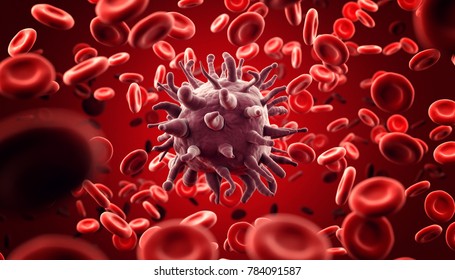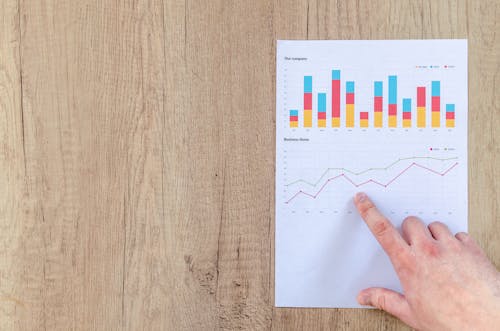Thousands of cases have been reported by the health officials in China. There are also cases that have been identified in other countries, mostly spread by the people traveling out of China, including Chinese people or the people returning from China to their respective countries. The virus can spread from one person to another through contact or even just being in the proximity of the infected person.
Over 20 countries have reported cases, including Singapore, Japan, Hong Kong, Thailand, Malaysia, South Korea, Taiwan, Germany, Vietnam, Australia, France, the United States, India, the UK, etc. and many other countries have set up screening centers for the people coming from China.
This is a large family of viruses that are collectively known as the coronavirus. Most of the known coronavirus symptoms only have simple effects on the people such as giving them a mild respiratory disease like the common cold, but there have been two such cases of the coronavirus that have shown massive effects on the infected which are Severe Acute Respiratory Syndrome (SARS) coronavirus and Middle East Respiratory Syndrome (MERS) coronavirus.
Fever, coughing, and difficulty breathing are some of the signs and symptoms which have been observed in the people infected. Some of the patients have also reported having a sore throat. There's been some speculation about the severe disease-causing potential of the novel coronavirus although these claims are not supported with proper proof. People with chronic illnesses and aged patients might pose greater chances of having a severe disease as a result of this virus.
The people who are living or traveling around the area where the virus is prevalent are at a high risk of infection according to the WHO. Currently, the virus is only present in China and all of the non-residents of China who have been infected have traveled to China recently and have been in contact with the infected people who are from China.
So, according to WHO, the risk to the people who are not living in China is very low as long as you don't come into contact with one of the non-resident Chinese people who are infected. Also, the WHO states that simple disinfectants can easily dispose of the virus if it is present on a surface and also the survival time of the virus on any surface is pretty low.
Coronavirus, also known as SARS-CoV, was responsible for the deadly SARS (Severe Acute Respiratory Syndrome) outbreak in Asia in 2003 and the virus quickly travelled across borders and caused secondary cases, triggering a worldwide state of panic with the outbreak of the disease escalating into a global epidemic. SARS is a deadly and contagious air-borne disease. Death can be as fast as within 24 hours in infected people.
Heads of governments scrambled to hold meetings, and the government of China (from where the outbreak reportedly started) took very aggressive measures to curb and contain the disease, including shutting down industries, offices and schools, and imposed a 30 days home quarantine for its citizens. The efforts paid off, and in 18 May 2004, the outbreak was declared to have been successfully contained.
The World Health Organization (WHO) recommends prompt isolation for all suspected annd probably cases of SARS in an effort to curb the spread, as it reduces contact with other people.
However, for caretakers of the sick patients with flu-like symptoms of suspected SARS cases, some homecare preventive measures must be taken so that the whole family living in the same house is not infected too.
The patient may be given a separate room away from the rest of the family, to recuperate. Home and personal hygiene must be stepped up with cleansing activities such as washing hands, washing clothes, and mopping the floor to keep the environment clean. If possible, instal a good air purifier which can destroy and minimise the amount of coronavirus flying about in the air, which could potentially infect the other family members.
Get your FREE Report on the "7 Deadly Invisible Killers in Your Home", and find out how a good indoor air purifier [http://www.atmosphereairpurifier.info] can destroy deadly viruses (including SARS Coronavirus and H1N1), bacteria and clean other pollutants and chemicals that can cause diseases in your home and workplace. [http://www.atmosphereairpurifier.info]
Dr. Sloan, MD., is an experienced and qualified practicing medical doctor with a passion for the promotion of a healthy lifestyle and the prevention of illnesses and diseases.
Coronavirus Driving People From The Stock Market
The coronavirus' stock market impact is immense. It is spooking stock markets. The Dow Jones Industrial Average (DJIA) shed 12% or over 3000 points over five days, February 24-28, the largest 5-day drop since the Great Recession. The DJIA recorded the biggest single day drop (1191) during that week on February 27.
China is a key player in companies' supply chain. That's why analysts fear firms in China won't deliver parts to companies like Apple and Walmart, which will cause these firms' results to suffer. The fear of the unknown is causing panic. Stock markets hate uncertainty, and this virus comes with an abundance of uncertainty: When will there be a vaccine? How will countries contain it, and so on?
Nobody knows how long the coronavirus' stock market impact will last. But history shows us that stock markets over-react and then continue their upward momentum. Today, the rapid proliferation of the virus increases fear, so people are over-reacting. We need to pause and not rush to the exit.
Markets recovered quickly from past viral outbreaks. Will the coronavirus' stock market impact lead to a realized capital loss to you? The market change, per se, does nothing. You lose funds only when you sell below market price. Some firms' results will suffer in the short-to-medium term because of insufficient inventory. Other companies will gain. Although we do not know the virus' severity, judging from past market responses, caution is the key response.
Are you a value investor with targeted companies in your portfolio? Examine your goals and stay the course unless you see changes in the firm's intrinsic value. Have you been speculating, looking to make a quick buck with a margin account? If so, you will have a challenge because banks will call your margin. That's the inherent risk when you use a margin account to speculate.
If you are not a speculator but a value investor, now could be the perfect time to identify value stocks and select those at bargain prices. There will be several. Whoever you are, be cautious, reject the herd mentality, and reflect on these matters:
Review or develop an investment goal and plan before you adjust your portfolio. Why have you been or do you wish to invest? Your reason will decide your investment strategy. My preferred strategy is to buy blue chip equities with a long history of increasing dividends. I hold these shares, review their fundamentals from time to time, and act when there is a permanent change.
You will find value stocks today. Market fluctuations provide a great opportunity to buy solid companies with good track records. Remember, you lose, or gain on sale only, not when markets fluctuate.
When your investments' intrinsic value change, confirm your strategy, and sell your holdings, even at a loss; don't time the market recovery. The market could be down for several years like the Tokyo Stock Market, which has been below its bubble heights for over two decades.
Don't let generic asset mixes influence your asset allotment between stocks, bonds, cash, commodities. You are unique, and your mix should fit you at your life stage. Think before rushing to so-called safe-haven commodity assets such as gold that has no intrinsic value.
If you are in the retirement red zone, five to seven years to retirement, your goal must be capital preservation, so avoid the stock market.
Don't panic: focus on your goals, plan, long-term strategy. Update these and ensure they fit your needs and your risk profile.
This, too, will pass, but God alone knows the timing.
Conclusion:
This article shares all of the symptoms to look out for if you think that you might be affected by the virus, but if you're a non-resident and have not been in contact with anyone traveling from China, you have no chance of catching the virus.
To know more about what coronavirus is, its symptoms, risk factors, how it spreads, prevention and treatment visit our site.







Comments
Post a Comment
Please do not enter any spam link in the comment